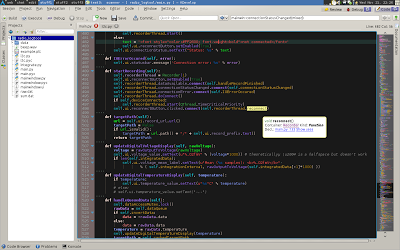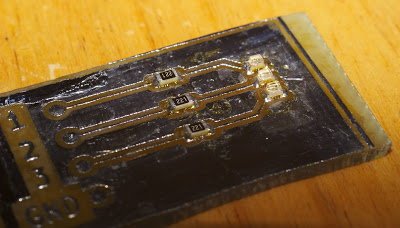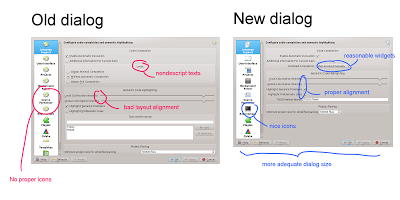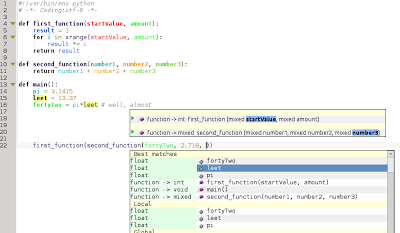kdev-python 1.4 stable released!

I’m happy to announce the release of the first stable version of kdev-python, version 1.4! As this is the first stable release, this post is supposed to be an overview about what kdev-python actually does. KDevelop with kdev-python 1.4 First of all, kdev-python is a plugin for KDevelop. Its purpose is to make development of python applications more convenient. The main focus of the program is static analysis of source […]






